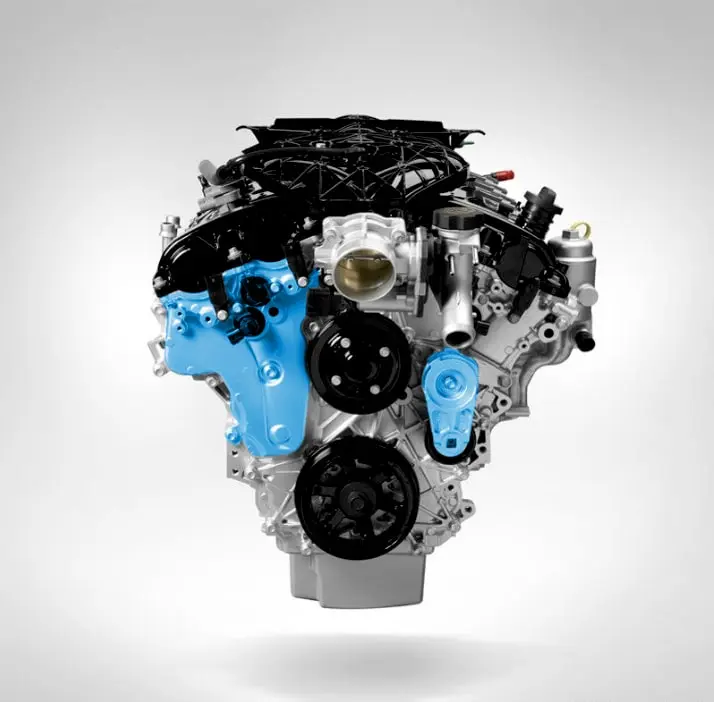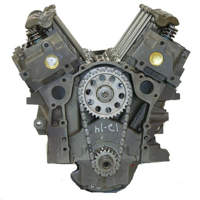How the 2.2 Ford Ranger Engine Delivers Power and Efficiency for Your Truck
How the 2.2 Ford Ranger Engine Delivers Power and Efficiency for Your Truck
Blog Article
Exactly How to Choose the Right Car Engine for Maximum Efficiency and Efficiency
Selecting the ideal car engine to attain an optimal equilibrium of efficiency and effectiveness necessitates a nuanced understanding of various engine types and their details features (2.2 ford ranger engine). Variables such as engine displacement, the number of cyndrical tubes, and fuel type play a crucial function in identifying both power result and fuel economic situation.
Comprehending Engine Kind
When selecting a cars and truck, among one of the most important parts to think about is the engine type, which acts as the heart of the automobile. The engine type substantially influences the automobile's general efficiency, long life, and viability for your driving needs. There are primarily 3 engine types to think about: interior burning engines (ICE), hybrid engines, and electrical engines.
Inner burning engines stay one of the most typical, operating fuel or diesel. They are known for their power and velocity, making them suitable for performance-oriented lorries. They might drop short in fuel effectiveness and ecological effect.
Hybrid engines incorporate an interior combustion engine with an electrical motor, providing an equilibrium between performance and gas economy. They are significantly prominent for chauffeurs seeking reduced exhausts while still delivering adequate power.
Electric engines, powered completely by batteries, are getting traction because of their environmental benefits and lower running expenses. They supply instant torque and a peaceful driving experience, making them suitable for urban commuting.

Efficiency vs. Performance
Choosing the appropriate engine type includes evaluating the compromises in between efficiency and performance. Performance generally refers to how well an engine can deliver power and acceleration, which is commonly related to larger variation engines or those with turbocharging abilities. These engines usually provide thrilling driving experiences and quick feedback times, making them preferred among enthusiasts.
On the other hand, efficiency concentrates on fuel economic situation and lower emissions. Smaller sized engines, specifically those equipped with innovative innovations such as direct fuel shot and variable valve timing, have a tendency to supply better miles per gallon and decreased carbon footprints. While these engines might give up some power contrasted to their larger counterparts, they often master daily driving situations where high performance is not constantly necessary.
Inevitably, the selection in between performance and efficiency depend upon individual concerns. A chauffeur who values spirited driving might prioritize a high-performance engine, while someone looking for cost-efficient travelling might favor an effective option. Recognizing these trade-offs is vital for making a notified decision that lines up with your driving demands and way of life, making certain that the selected engine type matches your assumptions for both performance and effectiveness.
Key Specs to Consider
Comprehending crucial requirements is essential for making an informed choice concerning the right cars and truck engine. When picking an engine, a number of important factors call for factor to consider to ensure optimum performance and effectiveness.
It indicates the complete quantity of the engine's cylinders and normally associates with power outcome; larger variations frequently yield more power. Engines with more cyndrical tubes can give smoother procedure and greater power, while smaller arrangements can improve gas performance.
Additionally, the engine's configuration, whether inline, V-type, or rotary, influences the overall design and efficiency features of the vehicle - 2.2 ford ranger engine. Turbocharging and supercharging innovations should likewise be examined; these boost an engine's power outcome without substantially increasing its size, hence improving effectiveness
Gas kind is another crucial consideration, as it influences both efficiency and costs. Finally, the engine's compression proportion affects effectiveness and power shipment; a greater ratio usually leads to much better efficiency, but may need exceptional fuel. By very carefully analyzing these specifications, you can select an engine that lines up with your efficiency and performance objectives.
Examining Driving Requirements
Reviewing driving needs is an essential action in determining the ideal cars and truck engine for your way of living and use patterns. Begin by examining your day-to-day driving routines, consisting of the frequency and duration of journeys. If your driving mostly consists of brief commutes in metropolitan atmospheres, a smaller engine with excellent gas performance may suffice. On the other hand, if you frequently carry out long-distance trips or require towing capacities, a much more powerful engine may be necessary.
Think about the surface you commonly navigate. Hilly or tough landscapes may demand an engine with higher torque for far better efficiency. Furthermore, review guest and freight demands; bigger households or those that deliver goods may benefit from vehicles with enhanced power and capability.
It's also vital to review your gas choices. Diesel engines often use exceptional torque and fuel economy for heavier vehicles, while gasoline engines might offer a smoother and quieter ride. Element in environmental considerations, as crossbreed or electrical engines can give a more lasting option without giving up efficiency. By thoroughly understanding your driving needs, you can make an enlightened decision that lines up with both performance assumptions and effectiveness objectives.
Future Patterns in Engine Technology
As the auto sector remains to develop, technologies in engine technology are paving the method for much more efficient and sustainable driving experiences. One significant trend is the change towards electrification, with crossbreed and completely electric powertrains getting importance. Car manufacturers are investing greatly in battery modern technology to enhance energy density and decrease charging times, inevitably improving the practicality of electric vehicles (EVs)
Another arising pattern is the advancement of hydrogen fuel cell engines. 2.2 ford you could look here ranger engine. These systems supply the possibility for zero-emission driving while giving refueling times equivalent to conventional gas engines. Furthermore, innovations in burning modern technology, such as variable compression proportions and enhanced turbocharging, are maximizing standard inner combustion engines for far better performance and performance
Digital combination is likewise an essential aspect of future engine innovation. The application of synthetic knowledge and artificial intelligence enables real-time data evaluation, making it possible for smarter engine administration systems that adapt to driving problems and enhance gas efficiency.

Final Thought
In verdict, selecting the appropriate car engine demands an extensive assessment of various my company elements, consisting of engine kind, performance needs, and effectiveness goals. By recognizing the distinctions between different engine types and considering key requirements, individuals can straighten their options with particular driving demands. As improvements in engine technology remain to emerge, continuing to be informed about future patterns will certainly even more improve decision-making, ultimately resulting in a vehicle that stabilizes performance and gas performance have a peek at this website properly.
Picking the suitable vehicle engine to attain an optimal equilibrium of efficiency and performance necessitates a nuanced understanding of numerous engine types and their specific characteristics. There are primarily three engine kinds to think about: interior burning engines (ICE), hybrid engines, and electrical engines.
Efficiency normally refers to just how well an engine can deliver power and acceleration, which is frequently associated with larger displacement engines or those with turbocharging capacities. Diesel engines typically offer remarkable torque and gas economic situation for heavier lorries, while gasoline engines may give a smoother and quieter ride.In conclusion, selecting the ideal automobile engine demands a detailed assessment of various variables, including engine type, performance demands, and efficiency objectives.
Report this page